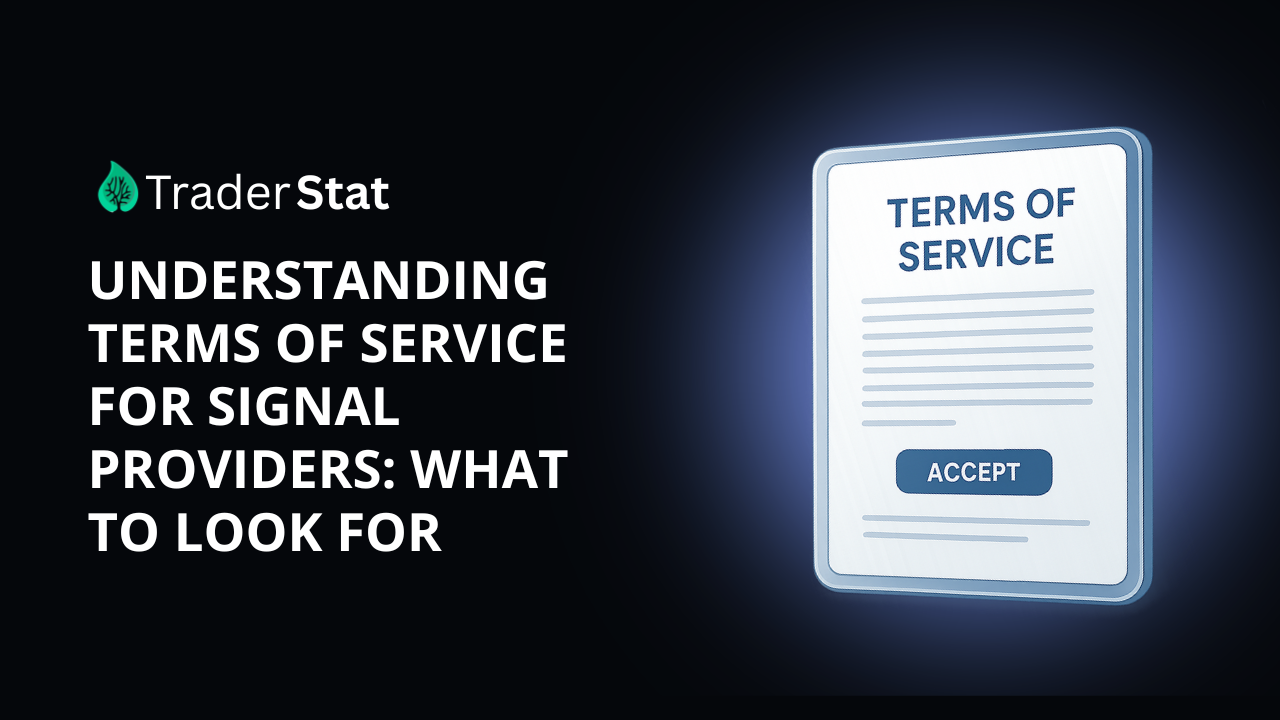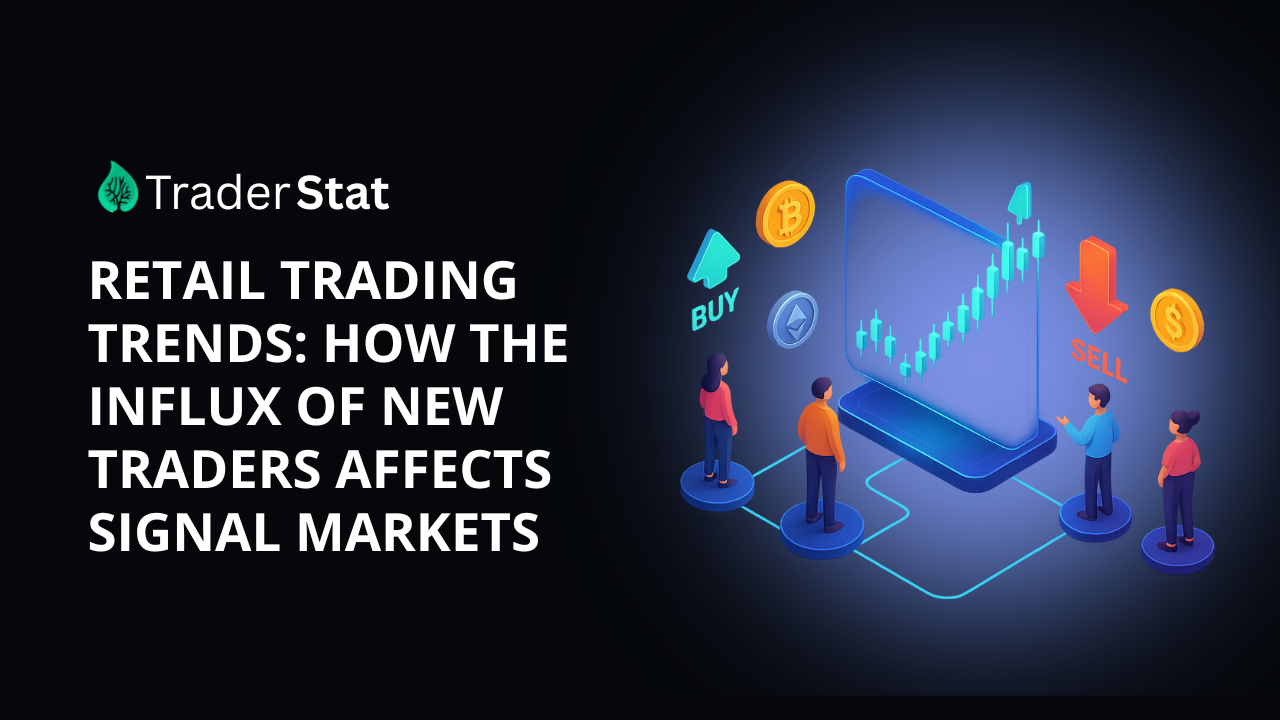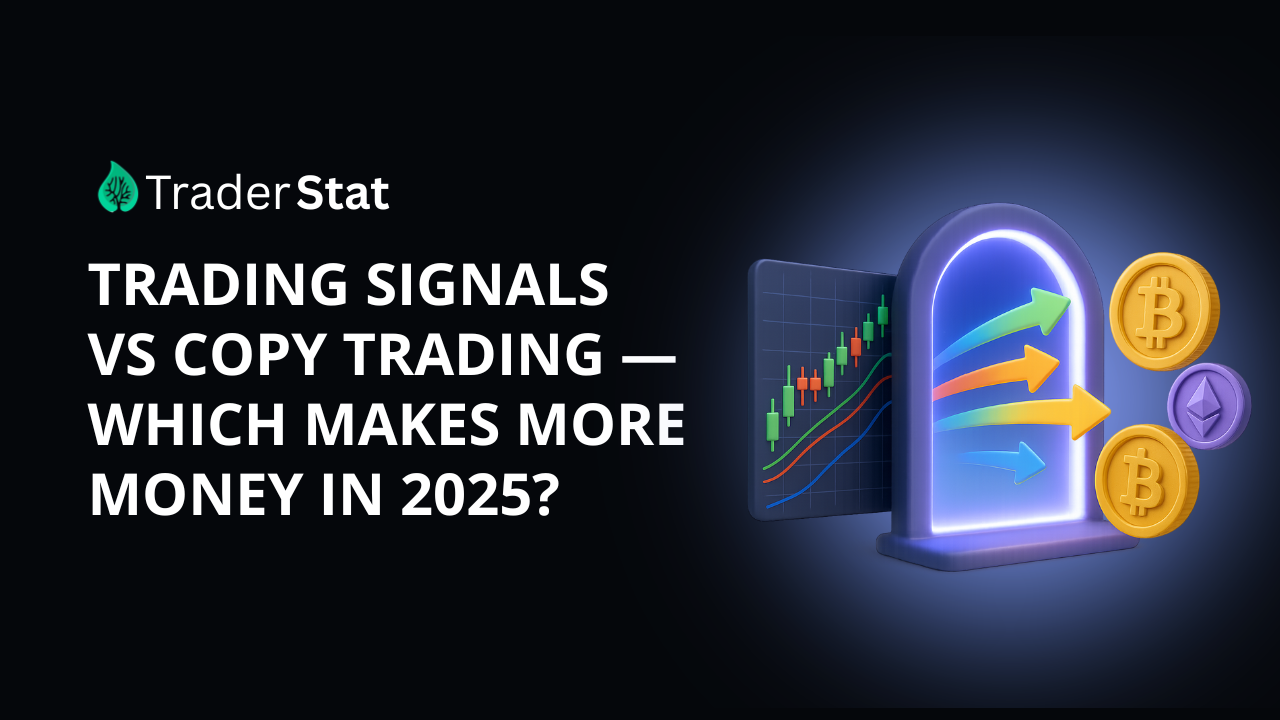
Understanding Terms of Service for Signal Providers: What to Look For
Introduction
Trading signals promise to simplify decision-making for busy traders by providing ready-to-use market entries, exits, and risk levels. But behind every signal provider is a document that many skip: the Terms of Service (ToS). These agreements outline your rights, responsibilities, and—critically—what protections you don’t have.
For traders, ignoring the fine print can lead to unexpected losses, disputes over refunds, or even legal trouble. Understanding the ToS is not just a formality—it’s the first layer of risk management when engaging with signal services.

Why ToS Matters for Traders
Hidden Risks in Unclear Agreements
Signal providers often market their services with bold claims: high win rates, consistent profits, or even “guaranteed” results. Without carefully reading the ToS, traders may assume these claims carry legal weight. In reality, many providers include disclaimers stating that performance is not guaranteed, leaving traders fully responsible for outcomes.
Some agreements may also contain vague terms about data usage or liability, opening the door to misuse of client information or lack of accountability for poor results.
Common Mistakes Traders Make
-
Skipping ToS entirely: Many traders sign up impulsively, treating signals like a subscription to Netflix—only to discover hidden renewal fees or restrictive refund policies.
-
Trusting marketing over legal text: Advertisements highlight profits, while the ToS clarifies risks. Traders often focus on the first and ignore the latter.
-
Assuming global protection: Providers based in unregulated jurisdictions may not be bound by consumer protection laws, even if you live in a country with strict financial regulations.

Key Clauses to Watch For
Performance Claims & Liability
Most ToS documents specify that past performance does not guarantee future results. If a provider’s website showcases impressive backtests or ROI screenshots, check whether the ToS explicitly denies responsibility for actual outcomes. This clause determines whether you can legally challenge them if performance falls short.
Risk Disclosures
A reputable signal provider will include a clear risk disclosure, warning that trading involves substantial risk of loss. While this may feel like a formality, its absence is a red flag: it suggests the provider is not transparent about market realities.
Refund & Cancellation Policies
Refund terms can range from generous money-back guarantees to strict “no refund” policies. For example:
-
Scenario 1: A provider offers a 7-day trial with full refund. This protects traders who quickly realize the service doesn’t suit their style.
-
Scenario 2: Another provider states “all sales are final.” In this case, once you pay, you cannot recover funds even if signals are inaccurate or the provider disappears.
Always confirm how cancellations work and whether subscriptions auto-renew.
Data Usage & Privacy
Your email, trading account details, or even broker login information may be requested. The ToS should state:
-
What data is collected
-
How it is stored
-
Whether it is shared with third parties
Without these safeguards, traders risk exposing sensitive financial data to misuse.
Copy-Trading Terms
Copy-trading services, where trades are executed automatically, carry additional responsibilities. ToS may include:
-
Execution risks (slippage, delays, partial fills)
-
Allocation rules (how trades are sized across accounts)
-
Provider liability (often limited, placing risk on the trader)
For example, if a signal provider’s trade executes at a better price than yours, their ToS will likely absolve them from responsibility for the difference.

Compliance & Legal Considerations
Regulatory Red Flags
If a provider explicitly states that they are not registered with financial regulators, this should raise caution. While some operate legally in gray areas, lack of oversight means fewer avenues for dispute resolution.
Licensed vs. Unlicensed Providers
Licensed providers must follow strict rules around advertising, data protection, and customer funds. Unlicensed providers may operate without accountability. Traders should weigh the lower cost of unlicensed providers against the higher security of regulated ones.
Jurisdiction Issues
Which country’s laws govern the ToS? This matters because:
-
A provider under U.S. law may be subject to strict financial consumer protections.
-
A provider in an offshore jurisdiction may offer no recourse in case of disputes.
Always check the governing law and jurisdiction clause. If it states disputes must be resolved in a foreign court, enforcement becomes nearly impossible for individual traders.

Practical Checklist for Traders
Before subscribing, confirm the following:
-
Is there a clear disclaimer about risk and non-guaranteed performance?
-
Are refund and cancellation rules transparent?
-
Does the ToS explain data collection and privacy?
-
What happens in the case of execution slippage or missed trades?
-
Which jurisdiction governs the agreement?
-
Is the provider licensed or registered with any regulator?
-
Are copy-trading responsibilities clearly outlined?
Example:
-
Provider A: Licensed, transparent refund policy, clear risk disclosure. Lower marketing hype but higher credibility.
-
Provider B: Bold claims of 95% accuracy, “no refund” policy, jurisdiction in an offshore island. Higher risk of disappointment.
Comparing Providers
Transparency Through Independent Platforms
Platforms like TraderStat are changing the landscape by offering verifiable performance tracking. Instead of relying solely on ToS disclaimers, they provide real-time audit trails of trades and ROI calculations. This independent verification reduces the burden on traders to trust provider claims blindly.
Why Independent Audits Matter
Without third-party verification, a provider’s claims remain self-reported. Independent audits confirm:
-
Actual execution prices
-
Real profit and loss
-
Consistency across clients
For traders, this is the difference between informed decision-making and gambling on trust.

Conclusion
The Terms of Service is more than legal jargon—it’s the contract that defines whether you’re protected or exposed. By paying attention to performance disclaimers, risk disclosures, refund policies, privacy terms, and jurisdiction clauses, traders can avoid costly mistakes. In today’s crowded marketplace of signal providers, the safest route is to always double-check ToS and use verified platforms before trusting your capital.

